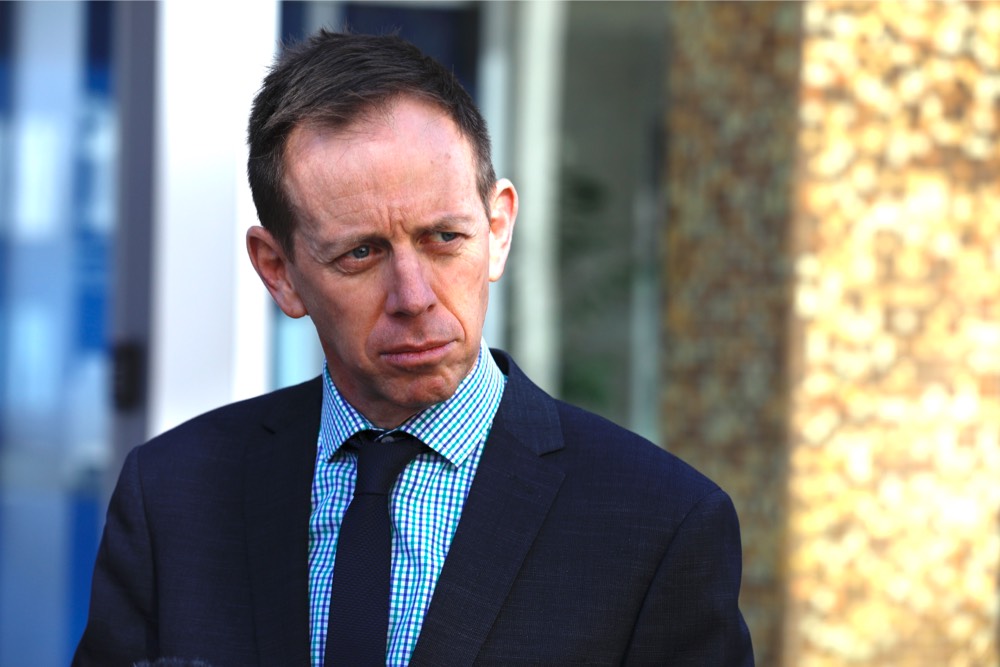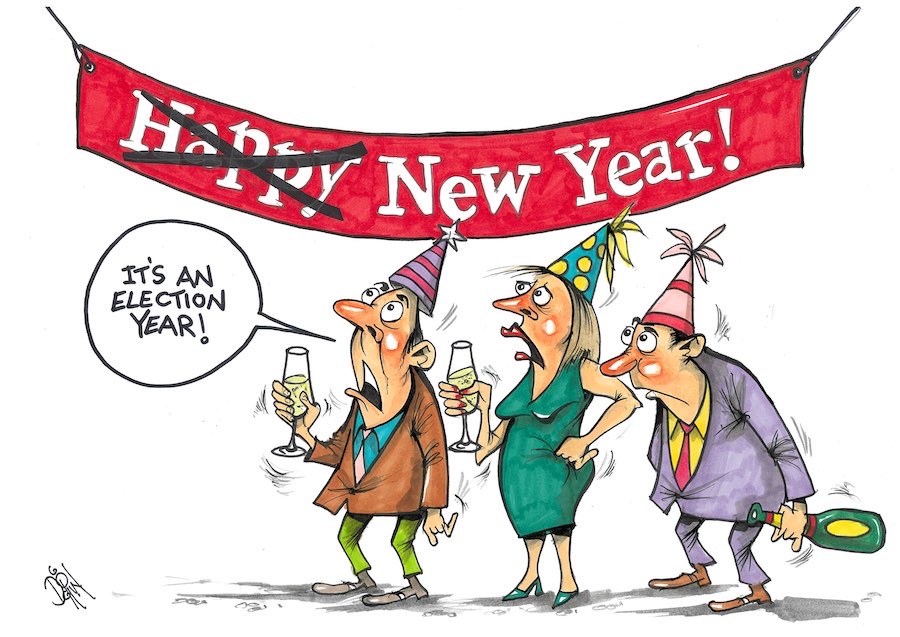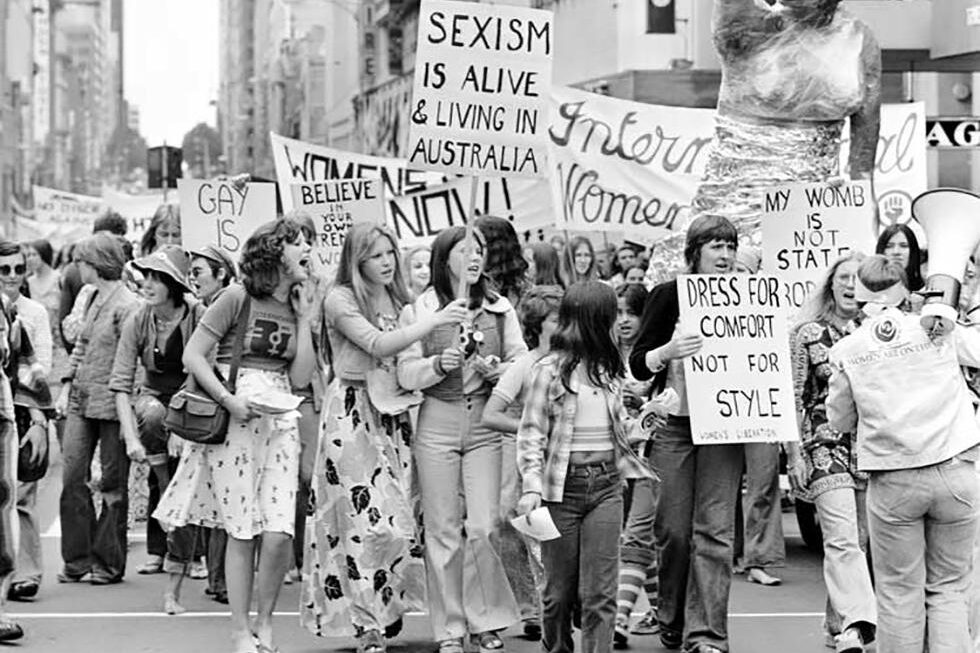
Attorney-General Shane Rattenbury has been accused of behaving improperly in the selection of the new ACT director of public prosecutions. On the facts so far, HUGH SELBY says no, he hasn’t.
Monday’s Australian newspaper had a front-page article headed “Rattenbury in the ranks of justice: deeply ‘troubling’ intervention of Territory A-G”.

It reports on an end of January meeting between the Acting Director of Public Prosecutions Anthony Williamson and the Attorney-General Shane Rattenbury. There was a takeout next to a large photo of the A-G headed “Implications of an astonishing summit”.
If the A-G believes that all publicity is good publicity then another large portrait photograph of him on page 2 should have had him sending The Australian a thank you note.
The two authors of the article, the well-known duo of Janet Albrechtsen and Stephen Rice, included the following in their lengthy article: “extraordinary meeting”, “highly unusual and disturbing intervention”, “long standing practice that the DPP does not account to the government of the day, but to parliament”, “only [the DPP] should be involved in deciding whether cases go to court of not”.
In as related “comment” article on page 2 of The Australian, Ms Albrechtsen opines: “It is the supreme irony that we may have been looking in the wrong place for possible political interference in the way law enforcement officers in the ACT conduct prosecutions of sexual assault cases”.
This is followed by a series of questions “spin querying” – with no evidence – whether and how the A-G was involved in the appointment of the new director of public prosecutions, and the failure to appoint the acting DPP – all questions that choose to minimise the independent process followed to select a new DPP.
Those without knowledge of actual practice and the relevant law might be swayed by that language to think that the A-G has behaved improperly. On the facts as outlined in Monday’s article he did not.
The ACT’s DPP Act includes the following:
19 Consultation
(1) The director shall, if requested to do so by the Attorney-General, consult with the Attorney-General with respect to matters relating to the performance or exercise by the director of his or her functions or powers…..
20 Directions and guidelines by Attorney-General
(1) The Attorney-General may give directions or furnish guidelines to the director in relation to the performance or exercise by the director of his or her functions or powers.
(2) Without limiting the generality of subsection (1), a direction or guideline may relate to—
(a) the circumstances in which the director should institute or conduct prosecutions for offences; or….
(3) A direction or guideline shall be of a general nature and shall not refer to a particular case….
Given the law, as distinct from the spin, the A-G is clearly entitled, as and when he wants, to talk to the DPP about sexual assault matters or any class of matters. Rather late in the article it is conceded both that, “Mr Rattenbury said he ‘didn’t want to be seen to interfere’ in the DPP’s statutory independence, but was ‘concerned’ about a number of sexual assault matters he had dropped recently”, and that, “Mr Rattenbury did not ask Mr Williamson to reverse his decision in the cases raised”.
Given the law and the AG’s reported comments, both articles and the headlines fall short of what we expect from quality, experienced writers who are dedicated, as we are often told in other articles, to the “rule of law” and “fairness”.
Musing about “fairness” let’s take a moment to look at the concluding paragraphs of the joint article:
The January 30 meeting has sparked speculation that someone within the Office of the DPP advised Mr Rattenbury of the terminated sexual assault cases in a bid to “white-ant” Mr Williamson [the acting DPP].
Mr Rattenbury’s request for the meeting with Mr Williamson came within a week of the discontinuance of the last case.
At least one person in the Office of the DPP is reportedly very close to one of the Attorney-General’s staffers.
If you worked in the ODPP and were “very close” to an A-G staffer would it be unreasonable for you to believe that the intention of these paragraphs was to single you and/or a colleague out as a “white-anter” of the boss?
There are good and proper reasons why a person can discuss what is going on at their workplace with anyone with whom they are “close” or “very close”.
Might you also take the view that in an office the small size of the ODPP you (be it one person or more) would be readily identifiable?
Further, since The Australian likes to trumpet its adherence to the necessity for freedom of the press, might you think that such freedom is accompanied by the responsibility not to speculate, but to check facts, and act fairly before throwing dirt over the reputation of someone who may lack the resources to send a “concerns notice” ( the first step in defamation proceedings)?
I see “supreme irony” in the reporting, but the irony I see has to do with the reporting standards, not claimed political interference.
Former barrister Hugh Selby’s free podcasts on “Witness Essentials” and “Advocacy in court: preparation and performance” can be heard on the best known podcast sites.
Who can be trusted?
In a world of spin and confusion, there’s never been a more important time to support independent journalism in Canberra.
If you trust our work online and want to enforce the power of independent voices, I invite you to make a small contribution.
Every dollar of support is invested back into our journalism to help keep citynews.com.au strong and free.
Thank you,
Ian Meikle, editor





Leave a Reply